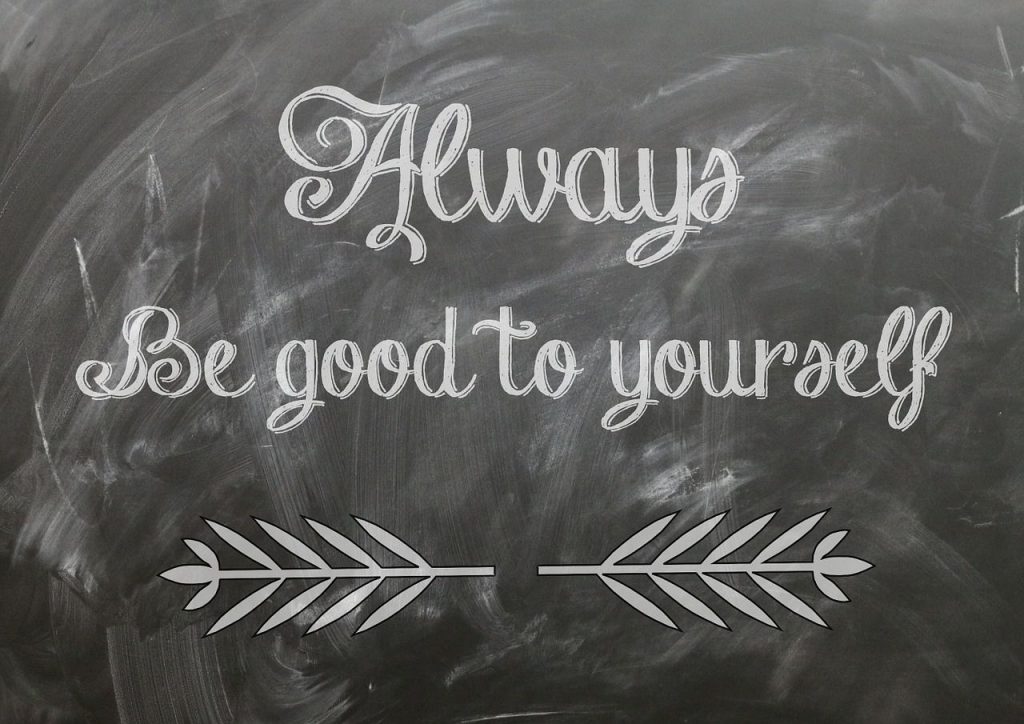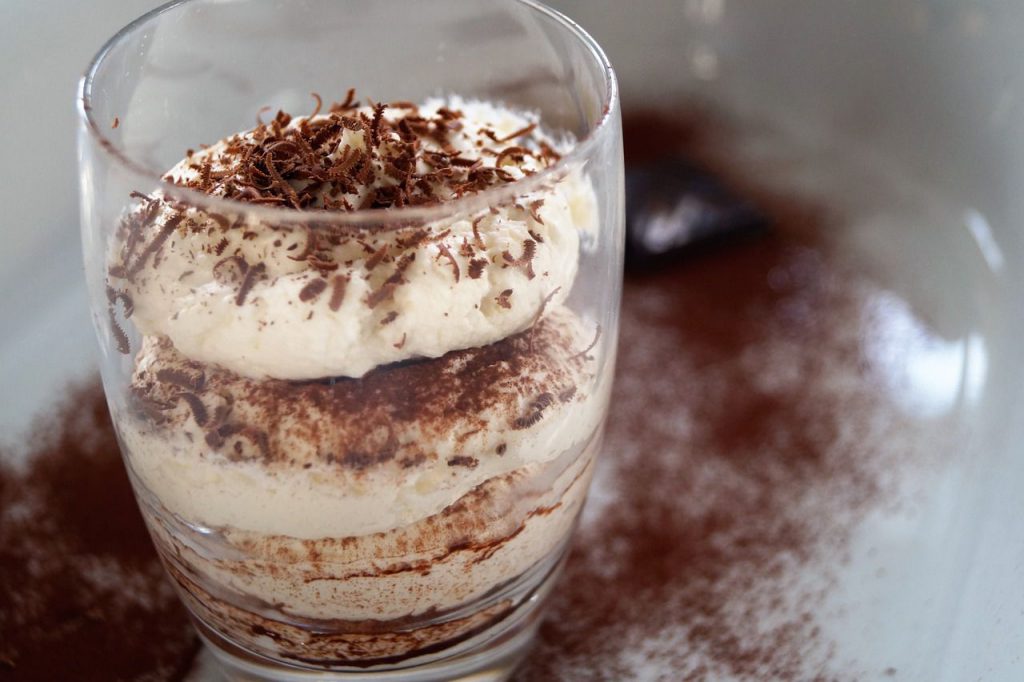Most of us are aware of the importance of taking care of ourselves, however misconceptions about self care still remain. While the importance of it is by no means a new concept, taking care of ourselves is a topic that we just can’t talk about enough. It deserves every bit of attention we give it, and then some.

So You Take Care of Everyone Else – How About Yourself?
So often we get caught up in role the caregiver for other people. It’s especially easy to take this on when we’re going through an emotionally traumatic time – when the one that really needs to be cared for is ourselves. Sometimes it’s easier to talk ourselves into just getting over something and focusing on rescuing others, instead of properly prioritizing ourselves amidst the struggles of life.
We’re conditioned not to make too much trouble or put people out, so not only do we not ask for help, oftentimes we don’t even acknowledge our struggles in the first place. If we’re honest with ourselves about things that aren’t working, it means we have to change them which means we have to get real with ourselves and likely confront some uncomfortable truths, thought patterns and usual ways of doing things.
How many of us can relate to this column?
“I think that initially, I had some misconceptions about the idea of self-care. To me, it was a way to build resistance to bullshit, disappointment, and a bit of depression – a way to ward off uncertainty. But I’ve learned, along the way, that this is impossible. You’re never going to be consistently happy and you can’t prevent sadness or life from running it’s course. Self-care is a way to at least strengthen yourself, find some inner core so that you’re ready when life comes at you.”
The Hairpin
So, as we visit some common thoughts around self care, a few questions worth asking and keeping in mind are: how have you been looking after yourself? What are some of your struggles with self care and the themes that keep coming up? And lastly, might any of these be misconceptions holding you back from taking care of yourself in the ways that you need?
Self Care is Selfish
I’m going to spend some time on this one since it’s probably the number one thought that most people struggle with when it comes to self care, and as a society it’s time we move on from this limited way of thinking. We really need to get over the thought that self care means making a choice between ourselves and others.

Many people get stuck on the notion that self care involves doing whatever makes us happy regardless of the consequences, or at the complete expense of others. We need to realize that feeling guiltless for taking care of ourselves is radically different from impeding on the self care or happiness of others, or worse yet, hurting others with our actions.
The notion that we don’t deserve to take the time to feel good runs very deep for some to the point that they are afraid it will make them a self-absorbed, out-of-touch person. This includes taking time out for yourself. But the bottom line is the more you treat yourself in ways that feel good, the more you treat others the same way.
It’s this idea that we’ll get so self absorbed and end up tuning out everything and everyone else around us that not only causes us to miss out on the benefits of self care but also deeper relationships with those we care about and interact with. In actuality, by regularly checking in with ourselves, we are fine tuning our connection with our self, everything and everyone around us to a much greater degree.
Sometimes the things we feel guilty or selfish for doing are the very things we need to do to get over our hang-ups. Even though we may feel guilty about it initially, it’s a great exercise to get over it. As we practice more self care, it helps us find out what our non-negotiables are. And when we know what these are, it becomes easier to say no to people and circumstances that negatively deplete our energy.
For example, solitude is very important for my well being, alone time is huge for me and if I deprive myself of it I don’t feel centered in my thoughts or present in my body, therefore it’s a non-negotiable for me. I also have to connect with nature and live music – both are extremely nourishing for my spirit and are a super important part of my self care.

What are your non-negotiables? If you don’t already know, I encourage you to find out and honor them as a regular part of taking care of yourself because when we’re deeply connected to what makes us feel well, each of us is better off for it.
Self Care Involves Doing Lavish Things For Yourself
Taking care of yourself isn’t necessarily a matter of pampering yourself, or a privileged luxury. If treating yourself to a spa day or a shopping spree is what you like than go for it, but a misconception is that self care is only for those with disposable income or people who need an excuse to indulge and that’s just not the case.
The only resources required for self care are you and something that makes you feel good, which can be something totally free like good quality sleep, or a walk on the beach, or curling up with a good book, or a quiet lunch at work with no interruptions in the middle of an overwhelmingly busy day. You get to choose what makes you feel great.
Self Care Must Be Earned
More often than not, we are faced with a society that undervalues and even devalues who we are, making us feel as though we don’t matter. Sometimes there is a lack of appreciation within the home, among family or friends, and overwhelmingly evident within the workplace. The expectation to always do more makes us feel like any moment we take for ourselves must be well earned and come only after we have worked our tushes off for someone else.
As human beings we are not the best at expressing gratitude, we tend to have high expectations of one another which are usually unreachable, and then we judge people for having “breakdowns”, when really if we could just see that by nature we are not made to “burn out”, that we have actually conditioned ourselves this way, we could see the value of taking care of ourselves to the extent of it being a necessary given we are grateful for, instead of something we must earn.
For example, in the past I have had high pressure, ultra demanding positions in management that required constant interaction with co-workers, vendors, sales reps and customers for the entire workday and no office or any space for that matter, to step into and be able to focus on certain tasks which required that, so during my one break of the day – 30 minutes, one of my non-negotiables was to go outside to have my lunch in a quiet place alone.

It’s crazy how much judgement I got for that. In a social environment, all of a sudden your co-workers think you are being anti-social. Can a girl not get crucified for removing herself from the chaos in the name of self care?! Maybe being social is an act of self care for you, if it makes you happy, I won’t judge you for it.
And this is what I mean when I talk about the tendency to be judgmental about the way a person chooses to take care of themselves. And that was just one tiny act of self care, so it’s easy to see how misconceptions can get created.
Being aware that self care is not something any of us should be required to earn allows us to stop judging ourselves first and in turn stop judging others. Bottom line: if you see the value in your own self care, you see the value for others, making it very difficult to judge anyone for taking care of themselves.
Self Care is the Same For Everyone
Taking care of ourselves is not a black and white thing, so if you feel like the “mold” of self care doesn’t fit into your life, it’s totally okay. There is no “prescription” for taking care of yourself. We all have different needs, different things make us feel good, some people get fulfillment in social environments, some in solitude, some people need to get out, and some need to stay in, some people need to set boundaries and some need to practice being more open.
Whatever makes you feel good and fulfills your spirit is the prescription for you. And only you, no one else, can know what these things are.
Self Care is Unfeminine
I find the dichotomy between women being the biggest caretakers of all and self care being considered unfeminine fascinating and maddening at the same time. I’m totally okay with women being instinctually nurturing and being appreciated for it, but not when it’s an expectation and classification of a gender-based role.

As women, we’re taught that our role is to take care of our spouse, kids, cooking and cleaning, and that any act of self care is a direct defiance and resilience to everything that tells us we’re not supposed to take up space or feel good about ourselves.
Women have become so good at survival mode, which takes so much work in itself, that by the end of the day they’re exhausted and can’t seem to find any time for themselves, so what they really need is extra permission to be kind to themselves. The notion that the caregiver aspect of women which makes them feminine in the first place, makes them unfeminine when applied to themselves is totally contradictory.
Women in relationships and moms, especially need to take time to nourish themselves with the things that they love, the things they enjoyed before they were a wife or a mom so that they don’t lose their individual identities. Not only do they totally deserve it, the entire family will reap the benefits and it instills in kids self love and confidence.
Self Care is Unmasculine
What better way to confuse ourselves then to, on the flip side of the misconception that self care is unfeminine, also consider it to be unmasculine? The truth is, societal classifications such as “head of the household” and “bread-winner” place men in gender-based roles too, where they are supposed to “bring home the bacon” and be in charge of household maintenance and repairs.
The long hours spent at a job, commuting and sitting in traffic can take its toll on your stress level – all very real pressures that result from providing financial support. Although men may feel under appreciated, their tendency not to talk about or show their emotions can create an outward facade that they are just fine when there is a very different story going on inside. Men need self care too.

Self Care is Too Time Consuming
Many people don’t give self care the time of day because of the notion that it’s reserved for those with a lot of free time. I’m calling bogus on that one. You don’t need to carve out a huge block of time for yourself. If time is slim for you, adding in a minute here and ten minutes there can be just as effective. The idea is to take advantage of the time slots you can grab by doing things that make you feel good, quickly tune you back into your body, and recenter or recharge you.
Realizing this does two things; releases us from the pressure that taking care of ourselves has to be some huge parade, and removes the excuses that we don’t have time to nourish ourselves.
Self Care is Automatic
The notion that we should already know how to take care of ourselves is another misconception. Nourishing self care goes far beyond the typical aspects of our physical care, and for that, there is no “self care manual”. Taking care of ourselves requires us to be present and make a conscious effort, and at times a learning curve is involved.
Many times we literally need to pencil ourselves in to our schedule as a reminder to do something that nourishes our mind, body and spirit, so that we don’t disconnect from ourselves further and assume we’re doing just fine on “self care autopilot”.
Self Care Always Has to Be Healthy
Self care isn’t just about being healthy. By that I mean, it’s also about giving yourself permission to have a glass of wine or dessert if you feel like it, or choosing to chill and watch a movie instead of doing housework, or realizing that you’re not going to have time for something you really want to do unless you order takeout instead of cooking.

In the end, making a choice to do something, even though it may not appear to be the healthiest choice at the time, and not feeling bad about it or apologizing for it requires being balanced, which is healthy to your overall well being.
Self Care is a Sign of Weakness
There is a notion that as a sign of our strength, we should be able to handle all things at all times. Needing quiet or alone time is often viewed as an easy out, a sign of weakness. Chilling out and taking time off from work and life is far from weak. There’s absolutely nothing wrong with being aware of your limitations. Knowing your boundaries and sticking to them is a sign of self love and respect, which takes courage and strength.
Asking for help and support is not a sign of weakness either, it’s a necessary part of taking care of yourself – no one can do it all. It took me a long time to get this one, but my idea surrounding it started to change when I experienced the feeling of being run down from loading my plate with too many commitments and putting the needs and desires of others before my own.
You start to see the impact you’re having on other people when you have to cancel on them because you scheduled too much at the same time, you’re trying to fit too many things in at once, or you literally get physically ill or exhausted. How many times have you or someone you know burned yourselves out for other people and meanwhile no one is there for you?
We are much better off when we put ourselves first, do the things we really love, are okay with saying no, surround ourselves with people who help us grow, and move on from situations where we are not valued. These are not selfish or weak choices – these are courageous choices that ultimately make us more loving, patient, and present individuals who attract the same kinds of people into our lives.
Do any of these misconceptions about self care hit a chord with you, or are there any others you’ve heard? What ways do you take care of yourself that make you feel good? Leave a comment in the section below!
